How the ABL Sensory Lab is Changing Lives for Children at Vogel Alcove
How the ABL Sensory Lab is Changing Lives for Children at Vogel Alcove
Vogel Alcove - Dallas, TX

A New Vision for Learning
At Vogel Alcove, laughter and energy fill the air as young children climb, swing, and jump their way through an ABL custom designed Sensory Lab designed to do more than just let them play. This unique facility serves as a refuge and learning space for children from infants to five years old, many of whom have experienced significant trauma.
Vogel Alcove’s staff have found that a movement-based approach, called Action Based Learning (ABL), is helping these children in profound and lasting ways. Vogel Alcove discovered ABL during a search for sensory room resources and techniques to support children’s unique needs. Through their research, they encountered ABL’s potential benefits, especially for children from backgrounds of trauma where sensory regulation can be a challenging but essential skill. Following this, ABL expert Jean Moize trained their staff, equipping them with strategies to incorporate structured movement and sensory activities throughout the children’s day.

How do Children Learn to Self Regulate?
“We learned all the benefits of Action Based Learning, especially for kids who come from trauma, like many of the kids at Vogel,” says Celeste Bucchan, Assistant Director at Vogel Alcove. Since introducing ABL, they have seen first-hand how movement impacts emotional regulation and overall well-being in young children.
Creating a Safe Place for Expression and Growth
Vogel Alcove now features Sensory Labs at two of its three locations—Dr. Seuss Village and the Red Bird Box. Both sensory labs are equipped with an assortment of tools ranging from a climbing wall to a foam pit and swings designed to stimulate, challenge, and calm children. For many children, it was overwhelming at first, Bucchan explains. But as they became accustomed to these unique surroundings, teachers observed a positive transformation. “The top three pieces of equipment the kids just seemed to navigate towards were the climbing wall, swings, and foam pit,” Bucchan says. “The added challenge and focus it takes lets kids get their emotions out in a healthy, safe environment.” These outlets allow children to channel their emotions productively, fostering resilience and emotional stability.

A Model for Trauma-Informed Education A Model for Trauma-Informed Education
Vogel Alcove’s ABL Sensory Labs are more than just classrooms—they’re vital sanctuaries for healing and growth. With two locations now equipped and a third potentially on the horizon, Vogel Alcove’s staff believe that these labs have become essential for their work with young children. By integrating movement into daily routines, they’ve created an environment that fosters resilience, self-confidence, and emotional well-being. As schools across the country look for ways to support children facing trauma, Vogel Alcove stands as a model of what’s possible when innovative movement-based strategies are implemented with care and intention. For Bucchan and her team, the ABL Sensory Labs are not just a tool—they’re a testament to the healing power of movement in education.

Looking Ahead
Stay tuned for updates as we track the progress of our ABL program and celebrate the achievements of our children as they embark on this journey to a healthier, happier future. Together, we can make a difference, one step – or Boomerboard jump – at a time.
A huge thank you to Vogel Alcove and Celeste Buccan for sharing their story and continuing to inspire us to improve the health, wellness, and education for children around the world! To hear more about this story, to request more information on this program, or share a your own story about ABL, contact ablacademy@kidsfit.com
Check out ABLLAB.COM for more stories!


